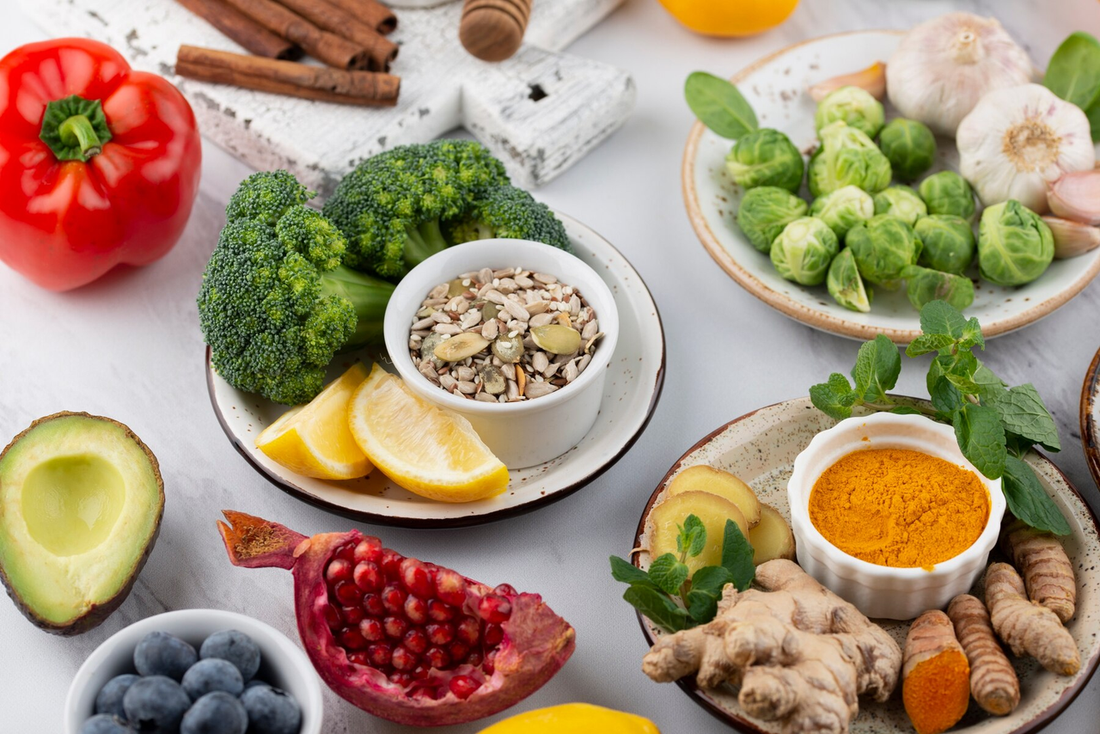Antioxidants are essential compounds that protect your body from damage caused by harmful molecules called free radicals. Including antioxidants in your diet can significantly enhance your overall health and help prevent a range of chronic diseases. This article will guide you through the importance of antioxidants, their benefits, and how to effectively integrate them into your daily nutrition.
Understanding Antioxidants
1. What Are Antioxidants?
Antioxidants are substances that can prevent or slow damage to cells caused by free radicals, which are unstable molecules produced by the body in response to environmental and other pressures. Common antioxidants include vitamins C and E, selenium, and carotenoids such as beta-carotene, lycopene, lutein, and zeaxanthin.
2. How Do Antioxidants Work?
Antioxidants neutralize free radicals by donating an electron, thus preventing the free radicals from causing cellular damage. This process helps protect your cells and tissues from oxidative stress, which is linked to various chronic diseases.
The Benefits of Antioxidants
1. Reducing Inflammation:
Antioxidants help reduce inflammation in the body, which is a key factor in many chronic diseases such as heart disease, arthritis, and certain cancers.
2. Boosting Immune Function:
By protecting cells from damage, antioxidants help maintain a robust immune system, enhancing your body’s ability to fight infections and illnesses.
3. Promoting Healthy Skin:
Antioxidants such as vitamins C and E are vital for maintaining healthy skin. They help protect the skin from damage caused by UV rays and pollution, reducing the signs of aging.
4. Supporting Heart Health:
Antioxidants can help lower the risk of heart disease by preventing the oxidation of LDL cholesterol, which is a key factor in the development of atherosclerosis.
5. Protecting Eye Health:
Certain antioxidants, such as lutein and zeaxanthin, are essential for eye health. They help protect against age-related macular degeneration and cataracts.
Sources of Antioxidants
1. Fruits and Vegetables:
Colorful fruits and vegetables are some of the best sources of antioxidants. Berries, oranges, spinach, kale, carrots, and bell peppers are all rich in various antioxidants.
2. Nuts and Seeds:
Nuts and seeds, such as almonds, walnuts, sunflower seeds, and flaxseeds, are packed with antioxidants like vitamin E and selenium.
3. Whole Grains:
Whole grains such as oats, quinoa, and brown rice contain antioxidants, including selenium and phenolic acids.
4. Beverages:
Green tea, black tea, and coffee are excellent sources of antioxidants. Additionally, red wine and dark chocolate, when consumed in moderation, provide beneficial antioxidants.
5. Spices and Herbs:
Spices and herbs, including turmeric, cinnamon, ginger, and oregano, are rich in antioxidants and can be easily added to various dishes.
How to Incorporate Antioxidants into Your Diet
1. Eat a Variety of Foods:
Incorporate a wide range of colorful fruits and vegetables into your meals to ensure you get a variety of antioxidants. Aim for at least five servings of fruits and vegetables each day.
2. Choose Whole Foods:
Opt for whole foods over processed foods to maximize your antioxidant intake. Whole foods retain more of their natural nutrients and antioxidants.
3. Snack on Nuts and Seeds:
Include nuts and seeds in your snacks or meals. Sprinkle them on salads, yogurt, or oatmeal for an antioxidant boost.
4. Drink Antioxidant-Rich Beverages:
Incorporate green tea, herbal teas, and even moderate amounts of coffee and red wine into your daily routine to benefit from their antioxidant properties.
5. Use Spices and Herbs:
Enhance the flavor and nutritional value of your meals by adding antioxidant-rich spices and herbs. Experiment with different combinations to find what you enjoy most.




